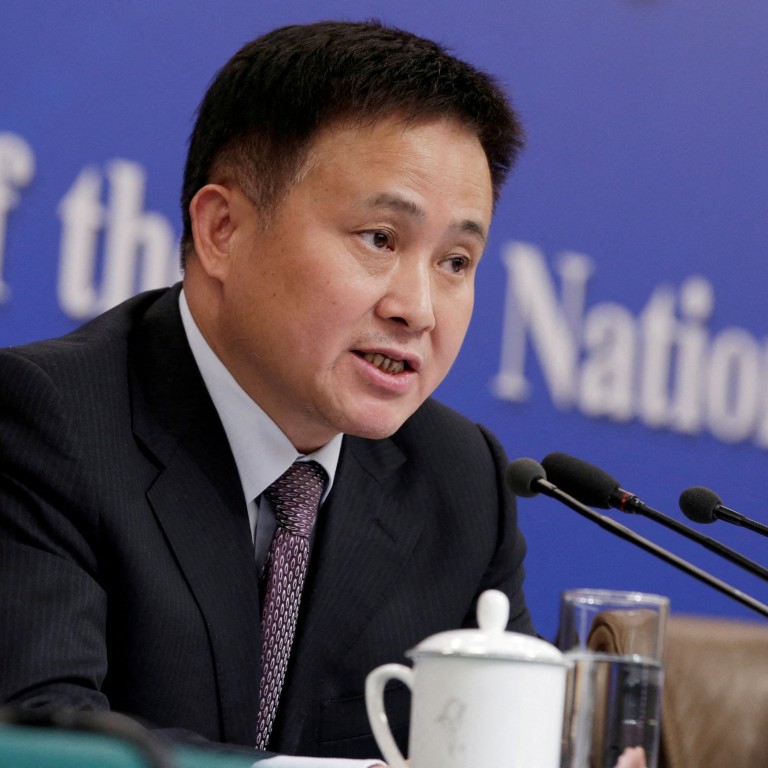
China names Pan Gongsheng new central bank governor, replacing Yi Gang, as twice-a-decade finance conference nears
- Pan Gongsheng formally replaces Yi Gang at the helm of the People’s Bank of China
- Analysts say Pan’s many years of experience at the central bank give him a critically important vantage point from which to tackle financial risks and shore up economic growth
Less than a month after being named party chief of China’s central bank, Pan Gongsheng has further solidified his oversight of the monetary authority by being elevated to bank governor – placing him in a critical role to address financial risks and growth momentum in the world’s second-largest economy.
The 60-year-old replaces Yi Gang, 65, who held the post since 2018. Pan has become a key member in President Xi Jinping’s third term as leadership eyes a steady post-pandemic recovery with low inflation and measures taken to guard against a variety of financial risks.
Before being formally named governor of the PBOC on Tuesday, Pan had already taken on some of the responsibilities while serving in the de facto role. He met his Japanese and South Korean counterparts in Japan on Sunday and also attended the Executives’ Meeting of East Asia-Pacific Central Banks the following day.
China’s data security must be put under microscope, central bank says
Pan’s appointment came as Beijing has been introducing new blood to help supervise the world’s second-largest capital market, and new regulatory requirements will soon be unveiled at the upcoming national finance work conference that generally convenes twice a decade.
The previous meeting was in July 2017, but it was pushed back from last year to ensure that the new leadership line-up that took office this year will be overseeing their own policy changes.
Pan, a native of Anqing in southeast China’s Anhui province, has a doctorate in economics from Renmin University. He was a visiting scholar at Cambridge University from 1997 to 1998, and he studied at the Harvard Kennedy School in 2011.
Pan has a deep understanding of China’s financial industry – he helped in 2006 with the restructuring and listing of the Industrial and Commercial Bank of China – the country’s largest bank by assets – and also headed another Big Four state-owned bank – the Agricultural Bank of China – before being named deputy PBOC governor in 2012.
Some analysts expect that his decade at the forefront of the country’s monetary issues has given him the experience needed to tackle China’s most pressing financial issues.
The world’s second-largest economy is currently facing a depreciating yuan, falling producer prices and mounting pressure from the market to help shore up the slowing economy.
In the past, the PBOC has launched more than a dozen structural tools, including a variety of relending programmes, to address the country’s structural issues such as funding for small businesses, agriculture and technology firms.
Unlike Western central banks that emphasise price stability and the job market, the PBOC is under the country’s cabinet, the State Council, and economic growth often enjoys a high priority among its multiple policy objectives.
Beijing has also been reshuffling its financial regulatory regime this year, with the establishment of the Central Finance Commission and the National Financial Regulatory Administration.


